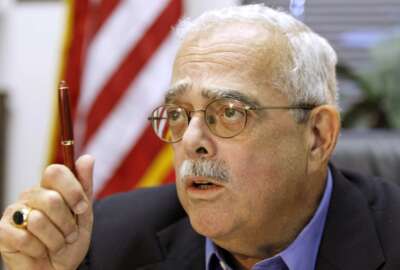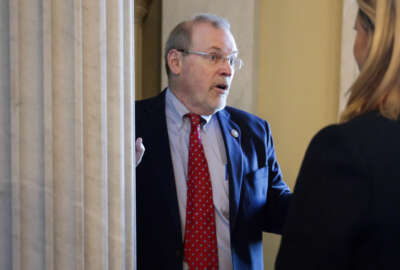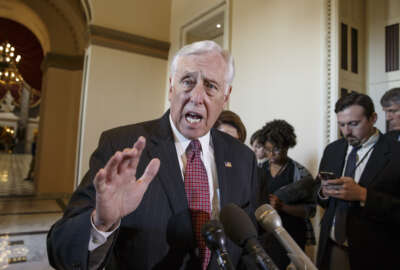
House Republicans introduce plans to revive ‘Holman rule’ in Congress
The Holman rule gives lawmakers the ability to make changes to federal employees’ salaries and reduce agency staffing.
The House Republicans’ proposed rules package for the 118th Congress aims to change several procedures around congressional operations, and one of those proposals holds particular significance for the federal workforce.
House Republicans recommended reinstating the “Holman rule,” a provision that lets lawmakers offer amendments that would make changes to federal agency and personnel functions during the appropriations process. Those changes can include, notably, reductions to federal employees’ salaries, as well as reductions to staffing numbers at agencies.
Specifically, the Holman rule “allows amendments to appropriations legislation that would reduce the salary of or fire specific federal employees, or cut a specific program,” a document from the House Rules Committee explained.
It’s a rule that the House last reinstated back in 2018, and although none of the proposed changes at the time actually went through, lawmakers did offer a couple of amendments related to the provision.
For instance, some House members attempted to eliminate 89 positions at the Congressional Budget Office’s Budget Analysis Division. The amendment to remove the staff ultimately failed in a vote of 116-209.
In another example from 2017, some lawmakers offered an amendment to reduce the salary of the administrator of the Western Area Power Administration to $1, according to a Congressional Research Service report. In the end, though, that amendment was not adopted.
Advocates of the Holman rule have said it offers cost savings to the federal government. But those opposed, such as the National Active and Retired Federal Employees (NARFE) Association, have said the rule is “redundant and misguided.”
“These congressional threats undermine the normal chain of command and seek to interject partisan congressional influence on decisions and analysis that should remain independent from such considerations,” NARFE National President Ken Thomas said in a Dec. 22 letter to House lawmakers. “The Holman rule’s so-called ability to give individual members an opportunity to suggest savings stands in stark opposition to its actual attempted use.”
Typically, federal agency leaders will testify before the appropriations committees about their projects and priorities at the beginning of each year’s budget process. Once a lawmaker introduces an amendment to an appropriations bill on the House floor, though, the affected agency cannot officially come before Congress to respond to the amendment.
Under the Holman rule, House lawmakers can propose amendments to wages or staffing for the federal workforce without input from the appropriations committee. House members can also debate the amendments on the floor for a limited amount of time.
The rule originated in 1876 and Congress has only used it very sparingly since then. Prior to its reinstatement in 2017 and 2018, the rule was last included during a congressional session in 1983.
As of now, the Holman rule is only a proposal for this Congress. Rep. Gerry Connolly (D-Va.) described the rule as “archaic,” and said House Democrats will push back against efforts to reinstate it for the 118th Congress.
Using the Holman rule is a way to “dismantle the federal workforce and carry out political vendettas at the expense of career civil servants,” Connolly said in a Jan. 2 statement.
In another provision under the proposed rules package, House Republicans recommended adding a new select subcommittee to investigate federal funding of efforts to recover from the COVID-19 pandemic. The subcommittee would fall under the Committee on Oversight and Reform.
The select subcommittee would be tasked with investigating and providing legislative recommendations on pandemic-related federal relief programs, as well as federal spending on those programs.
Incoming Oversight and Reform Committee Chairman James Comer (R-Ky.) has also said that “rooting out fraud, waste, abuse and mismanagement” in pandemic spending will be a priority for him this year.
Copyright © 2024 Federal News Network. All rights reserved. This website is not intended for users located within the European Economic Area.
Drew Friedman is a workforce, pay and benefits reporter for Federal News Network.
Follow @dfriedmanWFED





